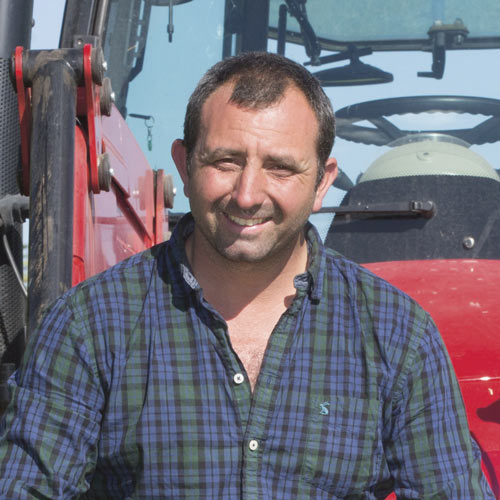Opinion: ‘Long live the livestock auction mart’
 © Tim Scrivener
© Tim Scrivener Picture the scene. Six gentlemen all in their late seventies, sat round a big, oval, plastic table in the refreshment area of a livestock market.
They resemble a meeting of Mafia bosses discussing their next crime. The only difference is the attire worn by these men – flat caps and tweed.
There is a distinct smell of bacon cooking and tea brewing and the conversation is about preparing for the time when they are six feet under and how they will have left their wealth.
One of them says: “Well it’s like this, you can’t take it with you.”
See also: In praise of the mixed farm
Another replies: “You can if you put your cheque book in the coffin first!”
Where else would you come across a wonderful scene like this with such witty banter, apart from your local livestock market?
In my local town, Louth, there is uncertainty surrounding the market.
Development
It currently takes place in the centre of the town and has always been its heartbeat, but the area on which it stands has been earmarked for development, potentially for housing or for a supermarket.
There is talk about it being moved on to a local industrial estate – which has been done with other marts in the UK. This proposal will hopefully save it, because it would be a grave shame if we ever lost it completely.
Apparently, too, there is a Royal Charter stating that there must be some sort of livestock market to service the town of Louth and its surrounding district.
It’s a controversial subject. Many of us farmers are traditionalists and would much rather see old, traditional livestock markets in the middle of towns with their wooden livestock pens and a pub nearby.
But as new guidelines and rules have come into place covering hygiene, animal welfare, access and pollution, so some of the old sites have become less fit for purpose.
We shouldn’t forget, as well, that new doesn’t always mean better and shiny, galvanised pens are not always the answer, as livestock are far more relaxed with woodwork around them.
I appreciate wood may not always be as hygienic, but I’ve penned countless sheep at sheepdog trials and they nearly always walk calmly into a wooden pen rather than one which involves bits of metal crashing together.
Watching a mart I’ve been familiar with since I was a nipper get moved and modernised will, I fear, be like going down to my local and finding the Tudor Bar and Inglenook fireplace have been ripped out and replaced by a trendy looking cocktail lounge! That said, we have to move with the times and if this ensures its survival I’m all for it.
There’s a new out-of-town mart being built at Malton in North Yorkshire. This currently has a lovely old-fashioned auction mart.
The sheep pens are so close to the town centre that once, when I was sorting shearlings with my dear friend and mentor David Thornally, one jumped out and headed off down the high street, only to be caught by someone in Woolworth’s doorway.
Business centres
The other aspect of all this is that if markets relocate to new sites, as well as continuing to be places for people to meet and trade livestock, they can become business centres, attended by arable farmers as well as their livestock counterparts.
Skipton Auction Mart is a good example of this. It has a NFU Branch, a bank, clothing and pet store all within its boundaries.
Auction marts have got to be multi-purpose if they are to survive. Perhaps they could be used for other purposes as well, such as farming conferences.
Most farmers would feel much more relaxed in those surroundings and it makes sense to keep the money in the rural community rather than putting it into the pockets of upmarket hotels.
I certainly have fond memories of local livestock markets. The highlight of my week during the school holidays was to go to Louth mart with Dad while Mum nipped to the shops (only a stone’s throw away).
Over the years I have witnessed some sights. Most recently, two of the main buyers of lambs ended up having a mock duel with their umbrellas over a pen of spring lambs.

© John Eveson/FLPA/ImageBroker/Rex Shutterstock
There was also the time another farmer rudely pushed in behind me while I was backing into the washout bay.
My revenge was to dowse him from head to foot with a high-pressure hose, with a round of applause from 20 onlookers.
The atmosphere can be electric on some sale days – packed with witty farmers with their pockets full of cash to buy prime stock, adrenaline pumping.
It’s the characters who really make it, and I must end by paying my respects to a wonderful man at our local market, Jim Barker, who recently passed away.
Jim could always be relied on for good humour. I will never forget how he shouted over to me a couple of days after my son was born: “Hey up, Readie, I hear you’ve got someone to inherit the overdraft!”
Long live our livestock markets.
